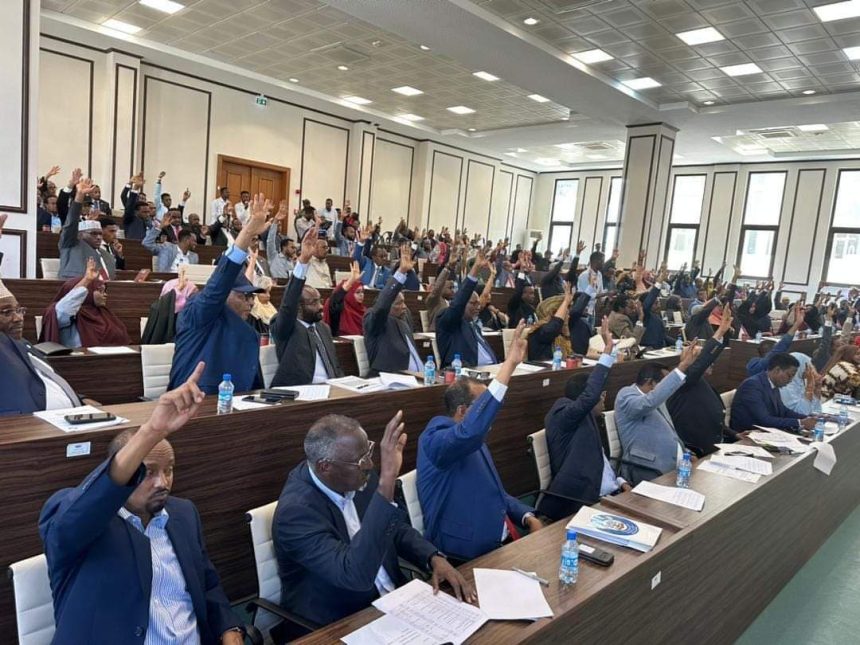Somalia, a nation marred by decades of conflict and instability, stands at a historic juncture as it embarks on a journey of constitutional reform. Recent amendments, approved by the parliament, have sparked discussions and debates both within the country and on the international stage. These amendments represent a significant departure from the past, aiming to restructure executive powers, foster inclusivity, and address societal issues. This article delves into the intricacies of Somalia’s constitutional evolution, exploring the motivations behind the amendments, their potential implications, and the challenges and opportunities they present for the nation’s future.
Historical Context
To understand the significance of Somalia’s constitutional amendments, it is essential to contextualize them within the nation’s tumultuous history. Since gaining independence in 1960, Somalia has grappled with political instability, clan conflicts, and governance challenges. The collapse of the central government in 1991 plunged the country into a protracted period of civil war and state fragmentation, leaving it vulnerable to internal strife and external interventions.
During this period of turmoil, various attempts were made to establish a stable governance framework, including the adoption of interim constitutions and the formation of transitional governments. However, these efforts were often marred by political rivalries, factionalism, and external interference, hindering the consolidation of state institutions and impeding progress towards peace and stability.
The Need for Constitutional Reform
Against this backdrop of instability and uncertainty, the call for constitutional reform gained momentum as a means to address the root causes of Somalia’s governance challenges. The existing provisional constitution, adopted in 2012, was seen as a temporary measure to guide the country’s transition to a more stable and inclusive political order. However, its limitations became increasingly apparent as Somalia grappled with persistent political tensions, institutional weaknesses, and socio-economic disparities.
The push for constitutional reform was driven by a recognition of the need to recalibrate the balance of power within the government, streamline decision-making processes, and foster greater accountability and transparency. Moreover, there was a growing consensus among political stakeholders that meaningful progress towards peace and stability required a comprehensive overhaul of the constitutional framework to reflect the aspirations and values of the Somali people.
The Process of Amendment
The journey towards constitutional reform in Somalia has been long and arduous, marked by numerous challenges and setbacks. Since 2012, successive parliaments have grappled with the task of amending the provisional constitution, facing hurdles ranging from political deadlock to security threats. However, the momentum for reform gained traction in late 2023, culminating in the recent approval of amendments by the bicameral federal parliament.
The process of amending the constitution involved extensive deliberations and consultations among political leaders, constitutional experts, civil society representatives, and ordinary citizens. Key issues, such as the distribution of executive powers, the structure of governance, and the protection of human rights, were scrutinized and debated rigorously to ensure that the amendments reflected the diverse interests and perspectives of the Somali people.
Key Amendments
Central to the constitutional amendments is the restructuring of executive powers, particularly the authority vested in the president and the prime minister. Under the revised framework, the president is granted the power to appoint and dismiss the prime minister without the need for parliamentary approval, marking a significant departure from the previous requirement for a vote of confidence from parliament.
This shift in executive authority is aimed at enhancing the efficiency and effectiveness of the executive branch, streamlining decision-making processes, and reducing the potential for political gridlock and instability. By empowering the president to exercise greater control over the composition of the government, the amendments seek to create a more cohesive and responsive governance structure capable of addressing the pressing challenges facing Somalia.
Addressing Political Disputes
Somalia’s political landscape has long been characterized by disputes and tensions between presidents and prime ministers, rooted in historical, regional, clan-based, and ideological factors. The constitutional amendments seek to address these underlying tensions by clarifying the roles and responsibilities of the executive offices and establishing clear mechanisms for accountability and oversight.
By delineating the powers of the president and the prime minister more explicitly, the amendments aim to mitigate conflicts and power struggles that have historically undermined the stability and effectiveness of the Somali government. Moreover, by providing for a more robust system of checks and balances, the amendments seek to safeguard against abuses of power and ensure greater transparency and accountability in governance.
Inclusivity and Consensus-Building
A central tenet of Somalia’s constitutional reform process is the imperative of fostering inclusivity and consensus-building among diverse political stakeholders. The amendments are intended to reflect the aspirations and values of all segments of Somali society, including minority groups, marginalized communities, and women.
To this end, extensive consultations and dialogue were conducted throughout the amendment process to solicit input and feedback from a broad cross-section of the population. Civil society organizations, community leaders, and grassroots activists played a vital role in advocating for the inclusion of provisions that address the needs and concerns of marginalized groups and promote social justice and equity.
Challenges and Controversies
Despite the aspirations for inclusivity and consensus-building, Somalia’s constitutional reform process has not been without its challenges and controversies. The amendments have sparked debates and disagreements among political leaders, civil society organizations, and ordinary citizens over issues such as the distribution of power, the role of political parties, and the protection of human rights.
One key area of contention has been the endorsement of a multi-party system, which represents a departure from Somalia’s historical political dynamics. While proponents argue that formalizing the presence of political parties will promote pluralism and democratic principles, critics raise concerns about the potential for polarization and exclusion in an already fragmented political environment.
Moreover, the amendments extend beyond the realm of governance to address broader societal issues, including the age of maturity for girls and the criminalization of female genital mutilation. While these measures reflect a commitment to advancing human rights and gender equality, concerns have been raised about their potential impact on entrenched traditional norms and practices.
Conclusion
In conclusion, Somalia’s constitutional amendments represent a significant milestone in the nation’s quest for peace, stability, and prosperity. By restructuring executive powers, fostering inclusivity, and addressing societal issues, the amendments hold the promise of ushering in a new era of governance and socio-economic development. However, the success of these reforms will depend on their effective implementation, the commitment of political leaders to uphold the principles of democracy and the rule of law, and the active engagement of civil society and ordinary citizens in shaping the future of their country. As Somalia navigates the complexities of constitutional transition, it must remain vigilant in safeguarding the gains achieved thus far and resilient in overcoming the challenges that lie ahead. Only through collective effort and determination can Somalia realize its full potential and chart a course towards a more prosperous and equitable future.
Roble Idle – Author, Think Tank
Email: Roble2003@yahoo.com





